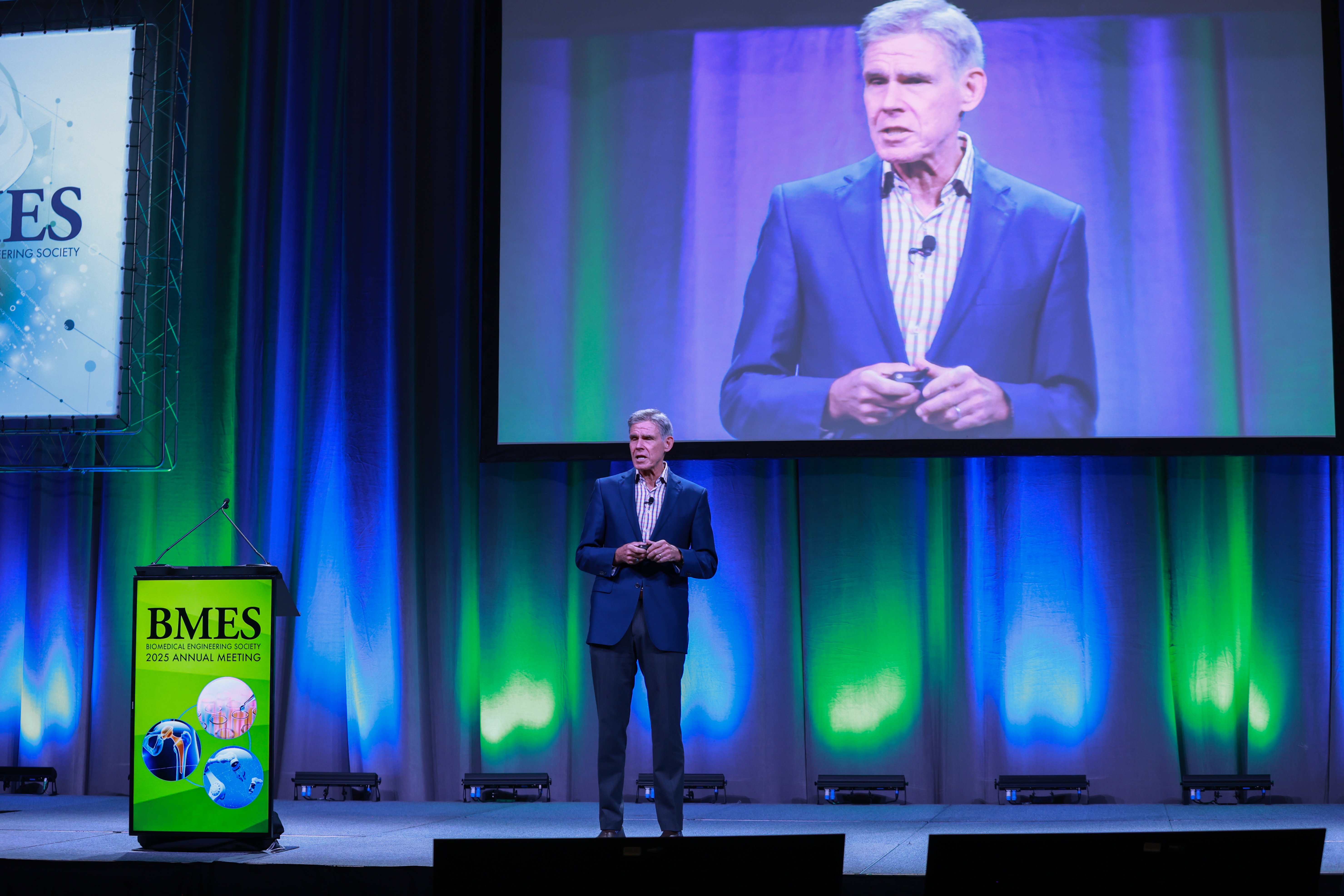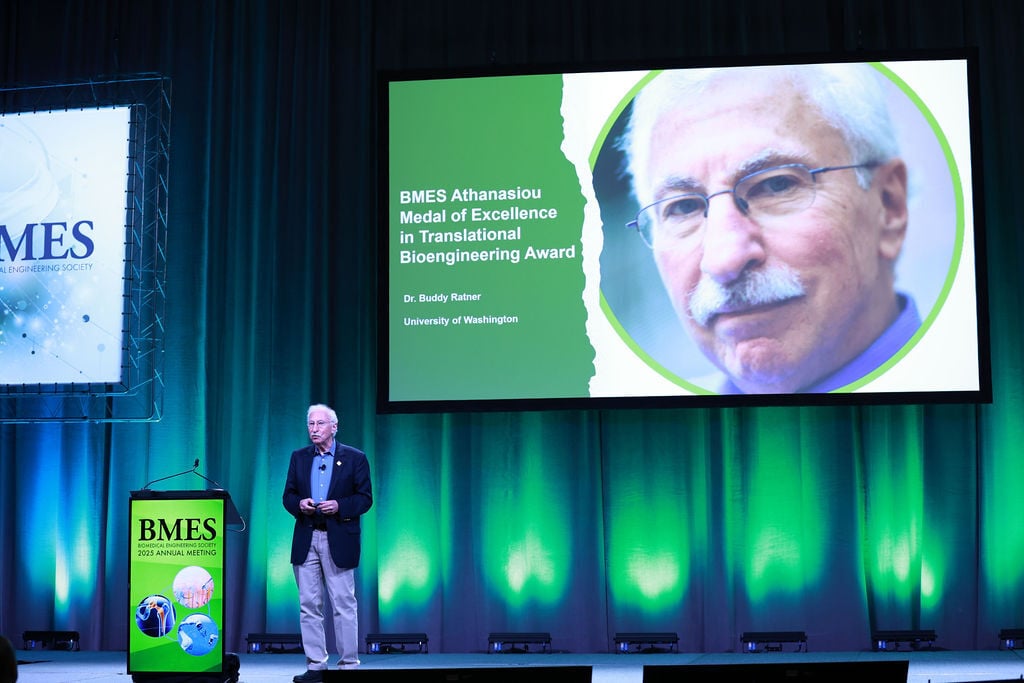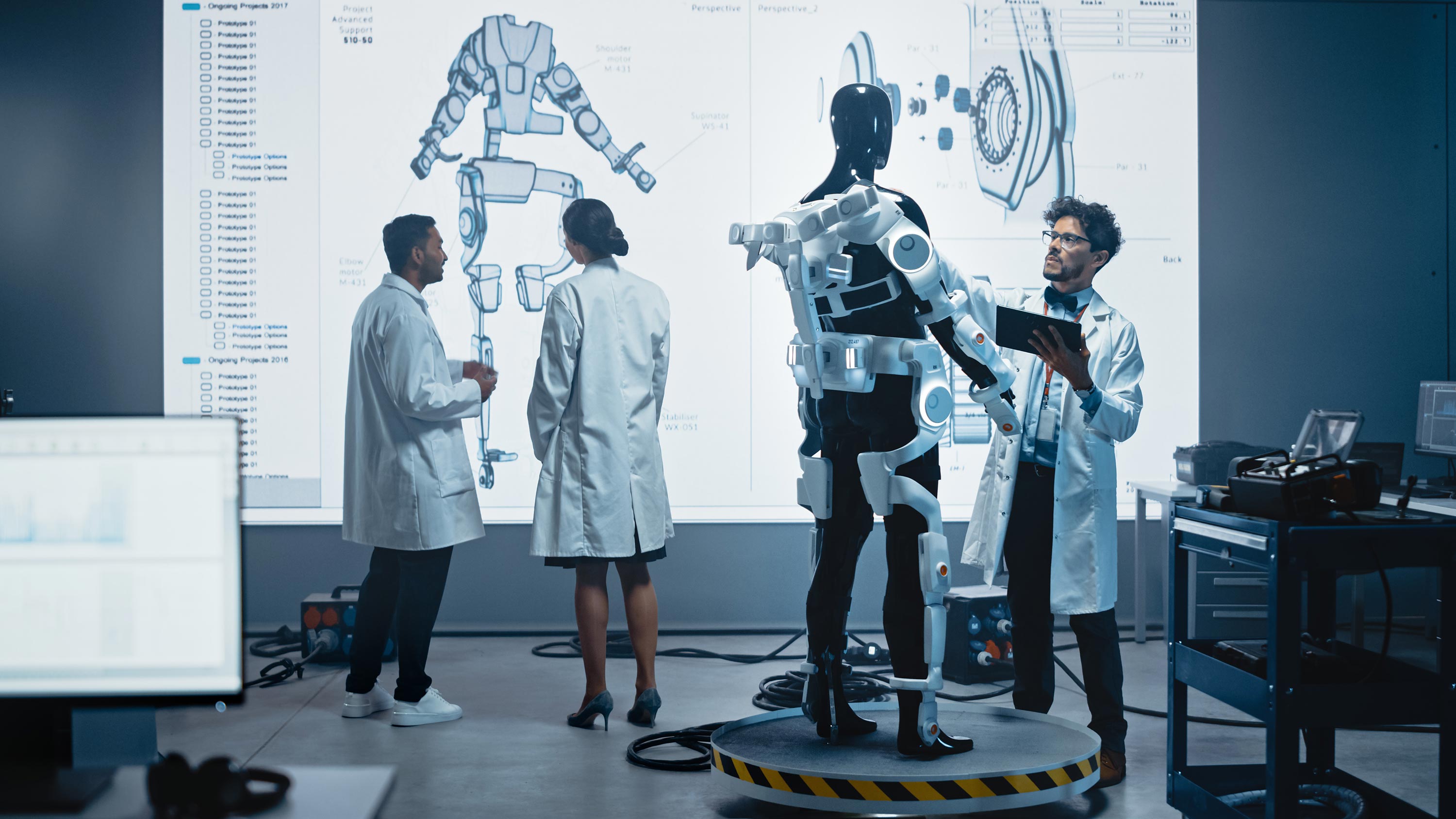2025 BMES Annual Meeting Post Show Wrap-Up
Bridging Healthcare Gaps Through Biomedical Engineering The Biomedical Engineering Society (BMES) is excited to share the official 2025 Annual...
BMES serves as the lead society and professional home for biomedical engineers and bioengineers. BMES membership has grown to over 6,700 members, with more than 110+ BMES Student Chapters, three Special Interest Groups (SIGs), and four professional journals.
Welcome to the BMES Hub, a cutting-edge collaborative platform created to connect members, foster innovation, and facilitate conversations within the biomedical engineering community.
Discover all of the ways that you can boost your presence and ROI at the 2024 BMES Annual Meeting. Browse a range of on-site and digital promotional opportunities designed to suit any goal or budget that will provide maximum impact.
This year, the Board of Directors is honored to announce that 30 members have joined the ranks as BMES Fellows.
The Fellow grade of membership is a prestigious honor recognizing outstanding achievement in biomedical engineering.
Fellows have demonstrated impactful achievements and made significant contributions to the biomedical engineering community and to BMES. They are active leaders in the profession and within the Society.
The new BMES Fellows will be honored during the 2023 BMES Annual Meeting in Seattle, WA, on October 12 at 4:30 p.m.
A special champagne reception will follow the presentation at 5:15 p.m. where we invite new and existing BMES Fellows to join the celebration and receive a new pin honoring the BMES Grade of Fellow.
The 2023 BMES Grade of Fellows and their achievements
|
|
|
Tamara Baynham |
For achievements in supporting the development and commercialization of medical device therapies in the areas of cardiac rhythm management and neuromodulation devices and service in support of healthcare innovation. |
|
Danielle S.W. Benoit |
For outstanding contributions to the design of 'smart' materials to treat diseases and injuries, control cell behavior, and develop new therapeutic strategies. |
|
Cynthia Bir |
For significant advancements in injury biomechanics from high-speed, small-mass impacts — including in sports, law enforcement, and military scenarios — and for outstanding efforts to excite the public about biomechanics. |
|
Eric Brey |
For his 20+ years of experience in biomaterials research, with a focus on engineering vascularized tissue and a commitment to diversifying BME through access to education and research opportunities. |
|
Ke Cheng |
For his contributions in translating adult stem cell and exosome therapies for regenerative medicine applications and in the development of new vaccines and biomaterials for COVID-19. |
|
Eunji Chung |
For pioneering drug delivery strategies for new diseases and indications while mentoring and supporting the diversity of the next generation of biomedical engineers. |
|
Rafael V. Davalos |
For outstanding contributions in biotransport, outreach, and cancer treatment. Inventions are distinct, fighting the full spectrum of cancer, from early detection and isolation of cancer stem cells to metastasis and treatment. |
|
Jianping Fu |
For outstanding contributions to the field of stem cell bioengineering and its applications for regenerative medicine and understanding human development. |
|
Akhilesh K. Gaharwar |
For achievements in designing advanced biomaterials for regenerative medicine, therapeutic delivery, and additive biomanufacturing, along with his outstanding contributions to the BMES mission. |
|
Samir Ghadiali |
For research advances in understanding mechanobiological mechanisms that drive pulmonary airway disease. Educational leadership as department chair at OSU, and service to BMES as track chair (twice) and session chair. |
|
Eileen Haase |
For outstanding contributions to biomedical engineering education through pedagogical innovations in high school, undergraduate, and graduate teaching and for contributions to African higher education. |
|
Brian Helmke |
For leading the charge in changing the way we teach biomedical engineering fundamentals for large classes while centering equity and inclusion, students’ sense of belonging, and collaborative learning. |
|
Yi Hong |
For building an outstanding research record on the development of new biomaterials for tissue repair and regeneration and for significant contributions in service of the biomedical engineering community. |
|
David Jamison |
For his record of research and teaching excellence in biomedical engineering, and development of a BME minor program at his institution. |
|
David Kohn |
For distinguished contributions and leadership to the fields of biomaterials and biomechanics, with particular emphasis on the regeneration of mineralized tissues and characterization of their mechanical function across dimensional scale. |
|
Aaron Kyle |
For his dedication to improving the field through high quality, design-centered instruction, STEM outreach, and purposeful inclusion of DEI into engineering education and practice as an engineering educator. |
|
Michelle C. LaPlaca |
For being an inaugural BME faculty member, building curricula and department strategy, and continuing leadership as Associate Chair; President, National Neurotrauma Society; and Associate Editor, Journal of Neurotrauma. |
|
Wendy Liu |
For her significant achievements in cellular and biomaterials engineering, advancing the fields of immune cell mechanobiology and immunomodulatory biomaterials. |
|
Keefe B. Manning |
For contributions to our understanding of fluid mechanics in cardiovascular devices, including the prediction of clotting and hemolysis. |
|
Karen May-Newman |
For research that advanced heart valve constitutive modeling and mechanical circulatory support (LVADs) while creating Bioengineering MS and PhD degree programs and advising the student BMES chapter. |
|
Michael J. McShane |
For achievements in modeling/design/fabrication/testing micro/nano-scale photoluminescent biosensors using implantable and wearable biomaterials and electro-optical instrumentation hardware and software as well as notable leadership in academic administration, training, advising, and mentoring future bioengineers, and service to professional societies. |
|
Jon K. Moon |
For achievements in techniques to quantify human metabolism and energy balance, for momentary assessments and interventions in behavioral health, and advancing devices for life support. |
|
Jennifer (Jenny) Munson |
For developing methods to measure, model, and manipulate flow, bridging imaging, tissue engineering, and biotransport, to push forward our understanding of diseases such as brain cancer. |
|
Marvin J. Slepian |
For achievements as an innovator and leader who has invented, researched, translated and brought into clinical use the first biodegradable stents, polymer paving systems, novel valves and the total artificial heart. |
|
Sarah Stabenfeldt |
For outstanding contributions to the biomedical engineering community through leadership, education, and scholarship in advancing neural tissue engineering and regenerative medicine, nanoparticle therapeutics, and biomarker discovery for the injured brain. |
|
Jessica E. Wagenseil |
For fundamental biomechanical and mechanobiological contributions to our understanding of how large elastic arteries remodel and adapt during development and disease. Also, for the tireless building of programs designed to promote inclusion and quality mentoring within the profession, and leading diversity and inclusion efforts in BME and STEM more broadly. |
|
Cedric Frank Walker |
For achievements in engineering education, especially the introduction of rapid prototyping and “making” throughout the curriculum. For the design of implantable electrodes, and also, for service to the BMES in accreditation. |
|
Lisa Waples |
For creating/implementing career conferences, BMES student career content, Coulter College (total impact thousands of BME students). Director of commercialization courses for NIH/VA (impact 400 innovation teams) |
|
|
For developing computational tools to understand the biomechanics of joints and effects of injuries and surgical procedures; and for service to BMES and the BME education community related to accreditation. |

Bridging Healthcare Gaps Through Biomedical Engineering The Biomedical Engineering Society (BMES) is excited to share the official 2025 Annual...

For Buddy Ratner, BMES Member and Professor of Bioengineering and Chemical Engineering at the University of Washington, translational bioengineering...

Two new Editors-in-Chief were selected for two prestigious Society journals: Keefe Manning, was named the new Editor-in-Chief of the Cardiovascular...

1 min read
Each year, theBMES Awards programrecognizes outstanding achievements and contributions of those in the field of biomedical engineering. Each...

NOW OPEN: Exhibit and Sponsorship Opportunities for 2023 BMES Annual Meeting Become a partner of the leading conference for biomedical engineering,...